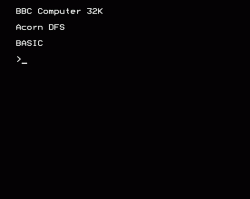
Think geek, think computer programmers. With the prevalence of software applications in our daily lives, professional programmers abound. Yet there are fears that general programming skills have declined since the original home computers of the 1980s were replaced by Windows PCs and dedicated video games consoles.
Cambridge-based Raspberry Pi Foundation is attempting to redress this with a low-cost programmable computer and an education drive aiming to get people programming, hacking and making at home once again.
Raspberry Pi’s inspiration was the BBC’s Computer Literacy Project, a landmark plan hatched in 1979 to produce a home ‘microcomputer’ and to broadcast an accompanying TV series, The Computer Programme, explaining how to use it. The project gave birth to the BBC Micro and brought computers, programming and gaming into living rooms, bedrooms and schools across Britain for the first time.